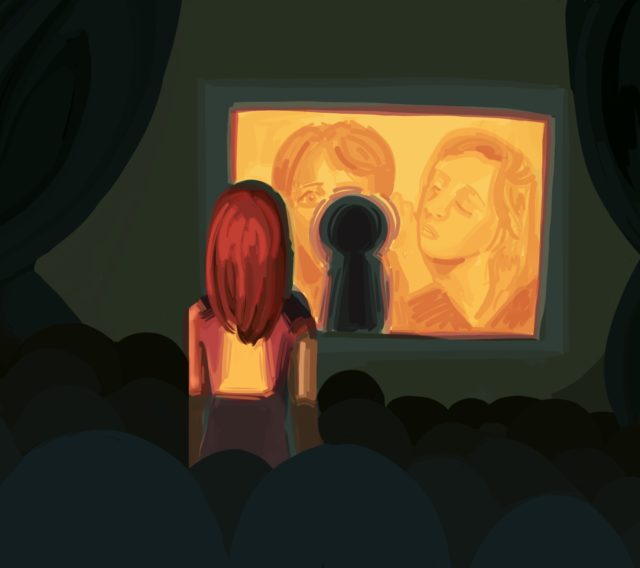This post was updated Dec. 2 at 3:58 p.m.
Last year, I watched “The Graduate” for a class about America in the 1960s. It was a movie I’d been wanting to see for years, but somehow I’d never gotten around to it.
Perhaps that is because of its time period. “The Graduate” was made and set in the same era my parents grew up in. But in a way, the feeling of the ’60s that the film captures so well extended all the way through my parents’ teenage years.
The world is a different place today. This might seem obvious, but you and the world change at the same time, and because the change is so gradual, you don’t realize it.
It’s interesting to look back on movies set in time periods I’ve never experienced. Over the summer, I watched “The Pursuit of Happyness,” starring Will Smith, which I believe to be one of his best movies, and one I technically was alive for.
But the world that Smith’s character, Chris Gardner, faces is nothing like the world I see today. In the 1980s, and to a lesser extent in 2006 when the film was made, the world seemed a kinder place. One where the American dream still seemed possible. One where you could still pull yourself up by your bootstraps.
The world I grew up in is nothing like “The Pursuit of Happyness.” I believe that the vastly increased connection of people all across Earth has somehow negatively dampened everyone’s hopes and dreams. We no longer hope that something incredible will land in our lap and save us.
Maybe that’s the biggest difference that “The Graduate” exposes. In the 1967 movie, protagonist Benjamin Braddock was looking for something unusual. Something that would distinguish his cookie-cutter life from everyone else’s.
In the movie, Braddock had the ability to land a good job and have the “ideal” life. We dream of a tie and a suit – of a stable, white-collar office job that will pay us enough that we can have the cookie-cutter life the ’60s pushed against. Despite the early 2000s positivity of “The Pursuit of Happyness,” even Gardner longs for that.
Upon its release, “The Graduate” resonated with teenagers and young adults, many of whom could relate to Braddock. After watching the movie, I can honestly say that all of the characters in the film were terrible. Some were necessarily one-dimensional, such as Ben’s parents and some party guests. But all of the three-dimensional ones were flawed. Elaine doesn’t seem to have much agency – she acts more like a prize to be won, going through the motions, even though she doesn’t seem to quite agree with them. Mrs. Robinson is, of course, a predator. And Ben, the person who was supposed to be the relatable main character, quickly turns into a manipulator and a stalker.
This is not to say that “The Graduate” is not a good movie. It is a great movie, maybe even a near-perfect movie. But not for the reasons it was previously considered to be. “The Graduate” perfectly represents the late ’60s – and maybe even the early ’70s – the same way “The Pursuit of Happyness” does the 2000s.
The attitudes of an age group are perfectly reflected in the pop culture of their teenage years. But perhaps the media landscape loses some of this reflective quality with each subsequent year, not because the people themselves are changing. I’d be the first to admit that if anyone were to watch current movies in 100 years, none of the references would make any sense.
Still, it was only after I’d finished the movie that I found out it was a comedy. Throughout the entire movie, I only laughed once. Going back through the movie in my head – even through the lens of satire – I couldn’t find anything of substance that was actually funny.
Perhaps the romance was supposed to be a parody of one. If so, it was overshadowed by the intensely horrific relationship between Mrs. Robinson and Ben – all of which was unexaggerated and gritty. And if the generational “warfare” was supposed to be satire, it was undermined by the realization that most of the workforce today would kill for a job like one Ben could land in his sleep.
Culture is never so static that everything will be understood in the future. And films are some of the best art forms to track this change. It makes me wonder what emotional shorthands in movies today will be puzzled over decades later even as the film is universally recognized as great. Yet perhaps, like the resurgence of older fashion, culture is also cyclical. Maybe I have more in common with the 1960s than the 1980s or early 2000s – and the conclusions of both films seem to imply that.
“The Pursuit of Happyness” has a happy ending, as you would expect. Chris Gardner wins it all: a well-paying job, new friends and a loving family.
If one were to make a realistic movie with that premise today, Smith’s character would end up on a bus, broke, maybe after a shotgun wedding. Not so coincidentally, that’s exactly how “The Graduate” ends.


Comments are closed.